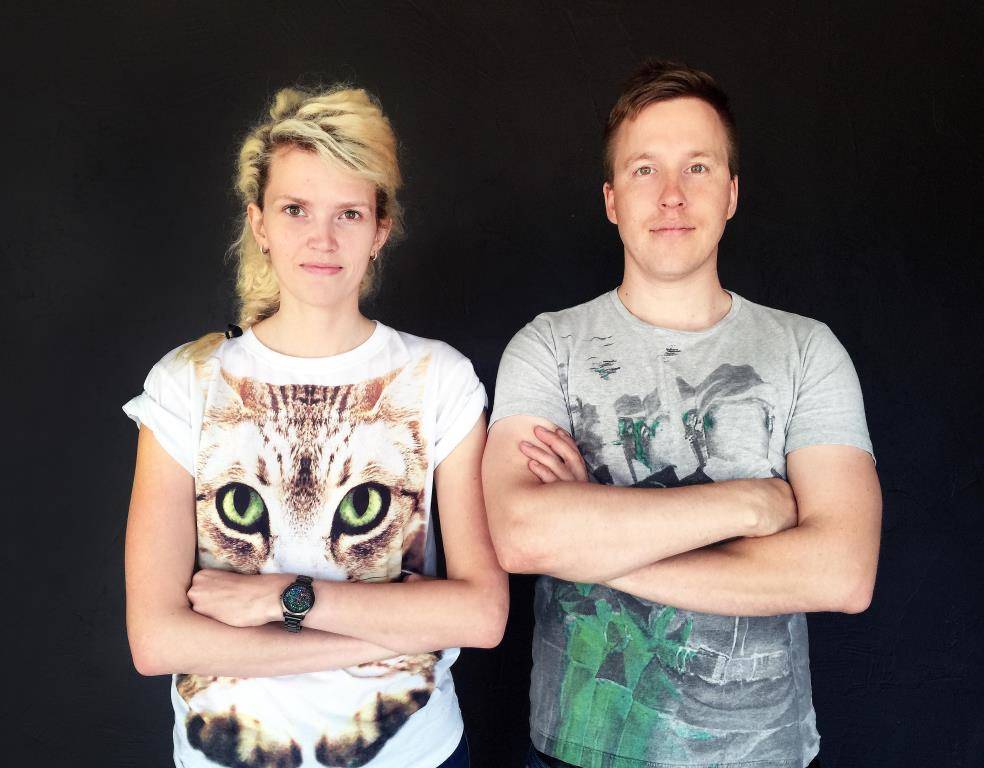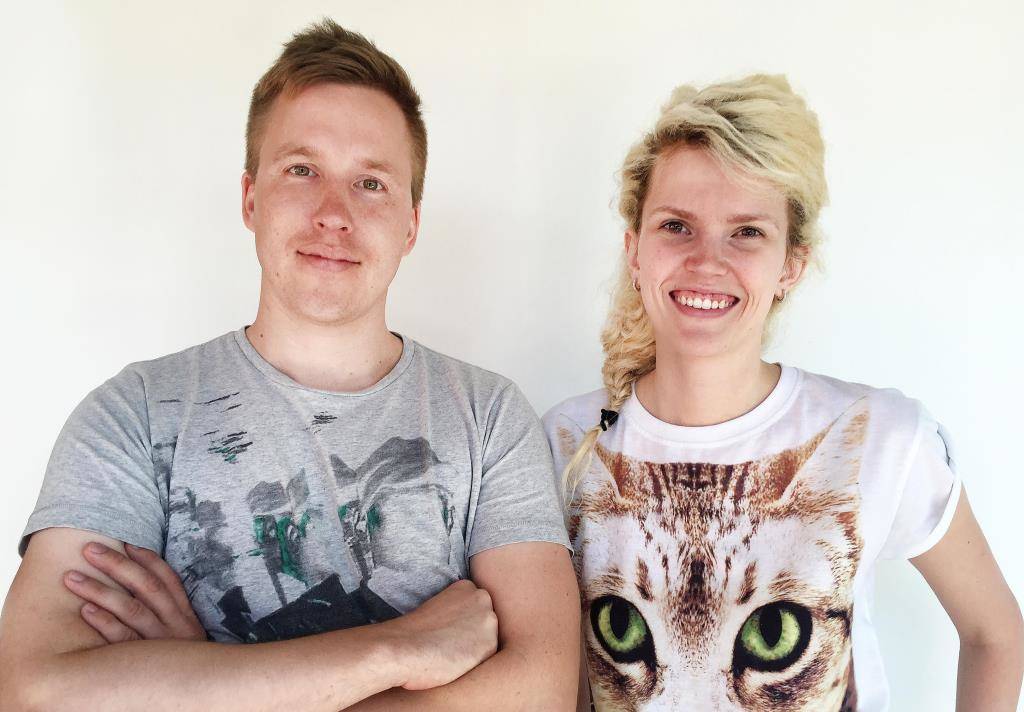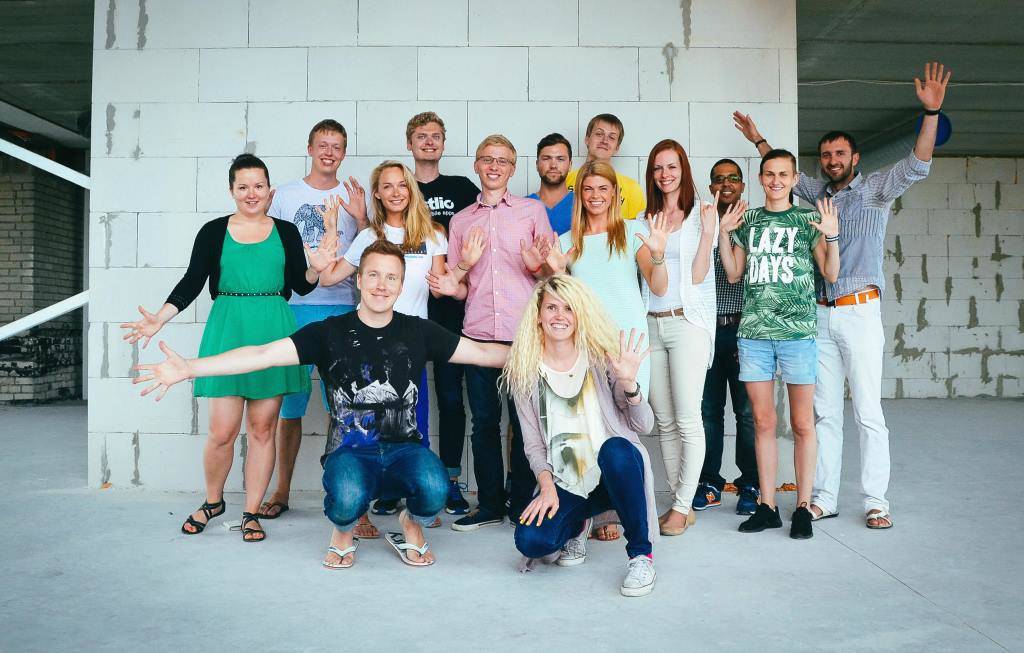“We want to change the world of testing,” claim Kristel Viidik (26) and Marko Kruustük (33), the power duo behind the testing startup, Testlio. “Our goal is to change the mindset so that this occupation would be seen as sexy. Being a tester does not have to be a launchpad for becoming a developer. Testlio should be the first name that comes to mind if you think of testing.”
The first time this writer met Viidik and Kruustük in the San Francisco Bay Area two and a half years ago, they had just founded their own company, Testlio – a startup that provides development teams with quality-assurance (QA) testers. They were looking for ways to raise money and lived off friends’ couches, being social in the evenings but working hard through days and nights. This had been their lifestyle for years, they did not yearn for stability or much comfort because they had finally figured out what they really wanted to do.
A few years earlier they were in a dire situation with Viidik staying in a hostel in London, sharing a room with nine other people and holding on to her backpack in the night, while Kruustük was back in Estonia looking for THAT idea to get them rolling. They were both working lousy day jobs and feeling miserable.
“Testlio is now 23-strong and there is a cool vibe in their uber-hip office, where people don’t just go to work but the air is filled with that special positive electricity and awareness that seems to be changing the world.”
Fast forward a few years and they are in charge of a bustling startup based at the Telliskivi Loomelinnak in Tallinn, the heart of Kalamaja, aka local “hipsterville”. Testlio is now 23-strong and there is a cool vibe in their uber-hip office, where people don’t just go to work but the air is filled with that special positive electricity and awareness that seems to be changing the world.
In early 2015, they managed to persuade a “party round”, ie a large number of individual seed investors in the Silicon Valley, including Techstars Ventures and Galvanize, and raised US$1 million.
Power couple
One of the angels in the round, Yee Lee, lists his reasons that helped him make the decision to invest in Testlio:
“I like the company for several reasons: 1) I believe in the power of online marketplaces to create a global level playing field for employment and labour; 2) I like companies that can dominate a focused niche and have large adjacent markets to grow into; 3) I like companies where the founders have worked together to build, validate, and iterate on the product. Testlio embodies all three.”
San Francisco based Lee, who is currently building his own next startup, Vouch Financial, a social network for credit, points out that unlike many other investors, he is not scared of working with husband/wife teams. “Many of the companies I’m most proud of being affiliated with were started by couples – Wildfire, Slideshare, Khush Labs.”
“I like the company for several reasons: 1) I believe in the power of online marketplaces to create a global level playing field for employment and labour; 2) I like companies that can dominate a focused niche and have large adjacent markets to grow into; 3) I like companies where the founders have worked together to build, validate, and iterate on the product. Testlio embodies all three.”
Viidik and Kruustük are long past the period in their lives when they thought being a couple was something they had to hide as a possible turn off for investors. On the contrary, being a strong tandem is a definite forte that also represents their dedication. They are one of those couples who obviously complement each other in every way, one starting the sentence and the other one finishing it. This is also how they came to the idea to build Testlio and how they’ve executed it.
“Kristel and Marko stand out among Estonian startuppers with their special ‘can-do’ attitude,” says Ott Kaukver, VP of Engineering at Twilio, a San Francisco-based cloud communication provider on which Testlio has built its platform. “They have an extremely positive mindset and they are willing to work hard to achieve it.”
Fast riders
“Most of the things have happened over the span of last months,” Viidik tells in her typical reserved manner that is in striking contrast with her anything but modest appearances. “The brand recognition has expanded.”
Testlio team is spread around the world with the core people based in their Estonia office: seven engineers, three QA managers, a designer, recruiter, PR and marketing, and a sales person. Two additional engineers will join in September.
“Kristel and Marko stand out among Estonian startuppers with their special ‘can-do’ attitude.”
“There is a certain look in the eyes of the people who are on a mission toward something truly big,” says Annika Ljaš, the head of branding and communications at Testlio, one of their latest hires. “In the case of Kristel and Marko, this look is combined with a strong confidence that failure is not an option. This is what convinced me to join Testlio.”
Having previously worked for a big state-funded organisation, Enterprise Estonia, Ljaš loves being part of a small team of young techies that is growing fast. “There’s so much I can do to make the Testlio brand stand out in the world. We’re in a market of immense potential, worth US$50+ billion, and Testlio is becoming the GitHub of testing. Our weekly all hands meeting tends to end in Kristel shouting, ‘Let’s do this, lets do epic shit!’ That says it all, it is epic.”
“We’re in a market of immense potential, worth US$50+ billion.”
They are indeed all hands in. Kruustük, who originally built the platform, still fixes bugs in the nights. And Viidik muses that she still enjoys hands-on testing: “Whenever we have a new customer, I help out because I want to make sure it is a great success.” She adds it would be unfair to expect everyone to work their butts off if they themselves would not be setting an example.
So how does one become a qualified tester on Testlio’s platform? First of all, one needs to pass a test on a test app with built-in bugs (“I built it but have never reached a score of 100% myself,” Viidik testifies). Then they sign up for a webinar for half an hour on time. And as a final test they need to work on a project over a weekend, so called “eat your own dog food” which would filter out the people who are not really passionate about testing.
“There is no such thing in the world of software as a product with no bugs.”
Only after passing those tests can one become a member of the international community of testers, most of them from the US, Ukraine, the UK and Estonia. There has been around 7,000 sign-ups from testers but around 250 are actively joining the projects and get paid monthly. The best people get voted to top by ratings from QA managers and the community.
“There is no such thing in the world of software as a product with no bugs,” Kruustük says. “We test big apps that have millions of users and pay attention to those bugs that have been notified the most. Testlio also provides statistics how the ratings get compiled and how one or another feature could influence those ratings. We are not just a testing factory, we actually help to better those products.”
“Testlio currently has around 30 paying customers, Microsoft among the others.”
Testlio currently has around 30 paying customers, Microsoft among the others, plus startups who need just a small testing cycle. “We always try to give feedback in 48 hours,” Kruustük claims. The 48-hour-cycle comes from the fact that most stable clients like to do their development during the week and use Testlio’s service over the weekend, so they can start a new week sans the bugs.
“I still remember our first big customer. We really wanted to impress them so we worked hard and gave our results really fast. That won them over.” Now that he is doing less testing himself, Kruustük has more time on his hands to revamp the whole platform.
Humble beginnings
Both Kruustük and Viidik have graduated from the Estonian IT College, a vocational school built solely for training high quality IT specialists, Kruustük having been among its first alumni and Viidik being his junior of 11 years. They met at an Estonian digital products company called Artify in 2008 when Kruustük hired Viidik for a project to test a website. By then he himself had a degree in IT management from the University of Kiel in Germany, had worked at the Estonian Traffic Insurance Fund for some time and lived in London for three years.
“I loved that feeling of moving someplace else and starting everything from scratch again,” Kruustük explains. “You sell everything you have and all the rest fits in a suitcase. Even if you have the courage and get on well with other people, things won’t just happen to you but you have to make them happen.”
When Viidik graduated from college, they decided to move to San Francisco. While there, Kruustük was interviewing for jobs but neither of them really blended in. So they unplugged their wires again and joined friends in the Dominican Republic, literally went surfing. No commitments, no deadlines to meet.
“I had a chance to reflect on everything I had done over the past ten years and I realised why I had not been successful at all,” Marko recalls. “I decided that dealing only with the tech side is not enough, I also need to pay attention to the business part. The mythical combination of a kick-ass developer and an MBA working together with not sharing their tasks does not really work. Both have to do a little bit of everything.”
“I began to realise how inefficiently testing was done on those platforms. How testers competed with each other and there was no actual process to deliver world-class results. Building a killer app is team work and I didn’t see that competing and being detached from the development team would help anyone get there.”
Two months later they were back in London and while Viidik was frantically looking for a job and a decent place to live in, Kruustük was trying to build his next company in Estonia. “I even worked as a waitress for a week, lived in a hostel infested with rats, clinging to my backpack in the nights, but I could not imagine that a man would pay my bills,” Viidik recalls with a laughter.
Finally Kruustük joined him in London, they found a nice place and moved in together but could not afford to live the bustling metropolitan lifestyle. “We would walk home from work together and have a party of our own. Ever since that time every little victory tastes sweeter.”
Viidik was working for different crowd-sourced testing platforms and became a gold level tester pretty fast. For a girl who was used to get by with so little, money was pouring in but so did an unnerving kind of restlessness.
“I began to realise how inefficiently testing was done on those platforms. How testers competed with each other and there was no actual process to deliver world-class results. Building a killer app is team work and I didn’t see that competing and being detached from the development team would help anyone get there. That was when Marko and I started discussing that this is something we could build.”
They signed up for a London hackathon called AngelHack. The 2012 event provided 64 ideas and they were among the first three. “We did not get elected for the free tickets to San Francisco because we had been hiding the fact that we were a couple as we thought that would not be seen as a good thing. But when we opened up about it to AngelHack founder Greg Gopman, they saw the potential in us as a team, and sent us to SF anyway.”
They flew to SF, where they won the finals with 27 other finalists from all over the world, with a seed investment of US$25,000 and a first paying customer. As the story goes, the rest is history.
To live the dream
“When we were celebrating in the end of the event at a home of one of the founders of Zynga, we thought: ‘This would be a cool way to live.’”
From that day on, things looked up for them. Having decided to be “all in”, they got engaged, quit their jobs and took a small loan to buy tickets to Austin, Texas, for TechStars.
“We have managed to combine work with joy.”
This was where they met Meelik Gornoi, their current head of development, who soon after became the first employer at Testlio. It only took them days to realise they created good synergy together: Viidik and Kruustük had the powerful energy and Gornoi had the experience of building teams and testing strategies from Skype.
“What I love about startups is the fast chain of feedback,” Gornoi says. “If you write a blog post or release a new feature, it reaches a great number of users and makes their life easier, and they thank you from the bottoms of their hearts. This also helps you to learn immensely and develop with and within the company.”
Gornoi had gone through a bunch of different roles over those few years starting from writing code and managing client projects to being a technical project manager, scrum master and a hiring officer. “We have managed to combine work with joy – a great part of our culture is going out with the whole team every Thursday to exchange ideas in a more relaxed environment. The team has grown but the vibe has remained the same and I hope this lasts forever.”
They have had the company office in Tallinn since March this year. Until then, they had always been extremely frugal. “I never like to spend money if you can rather keep it,” Viidik says. “But now that our cash flow is positive, we raised the round and do not have to check our bank balance every day, we can relax a bit. The main thing is to keep the testers happy.”
As the fall creeps in in Estonia, Viidik and Kruustük set their eyes on California again. Soon they will have to start raising money for the next round. “And who knows, we might even have a party when we finally open our office in the US.”
I
Testlio
Founders:
Marko Kruustük – Hacker since the age of 12. Founded first software startup while still at high school.
Kristel Viidik – CEO of Testlio; software tester; creates and breaks software.
Funding: Seed funding of US$1 million in March 2015.
Employees: 23.



